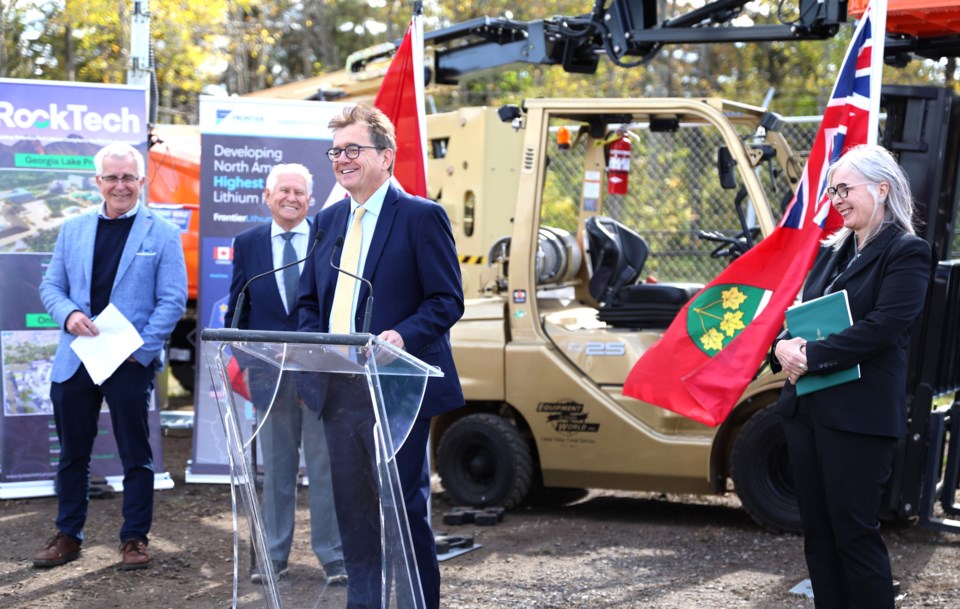THUNDER BAY – Nearly $14 million will be provided to help fund four critical minerals projects in Northwestern Ontario.
Federal minister of energy and natural resources, Jonathan Wilkinson, made the announcement Monday in Thunder Bay. The funding is provided through the Critical Minerals Infrastructure Fund.
Frontier Lithium is getting more than $6 million towards engineering for a 56-kilometre all-season road and electricity infrastructure for the Pakeagama Lithium project north of Red Lake, and to help advance their Indigenous engagement.
Green TM Resources Canada is receiving $5.5 million to upgrade more than 110 kilometres of existing roads and replace three bridges to support a lithium mine near Armstrong.
Rock Tech Lithium will see $1.4 million to upgrade and extend a 10-kilometre access road north of Nipigon, allowing the transport of lithium from its Georgia Lake Project mine site.
Another $771,000 is going to Generation PGM for engineering and design work for an access road as well as feasibility studies for and other road and rail links to support the transportation of copper concentrates from its Marathon project.
Critical minerals are used for clean energy technologies from electric vehicles to batteries and Wilkinson said the long-term demand for lithium is going up as more and more batteries are being produced for a range of applications.
The minister also acknowledged the important role of surrounding communities, particularly First Nations in developing projects like these.
“This whole burgeoning area of critical minerals and critical minerals processing is an enormous opportunity for economic reconciliation with Indigenous communities,” Wilkinson said. “Those are some of the things we look at very closely when we actually are making decisions.”
Minister of Indigenous Services and MP for Thunder Bay-Superior North, Patty Hajdu, said the communities appreciate a federal government who wants them to be at the table.
Hajdu said when discussions are had around not only jobs, but shared economic benefit, that is when “communities feel they have a voice.”
Hajdu also said the projects being funded are great for the riding in terms of jobs and revenue for the region.
“Certainly there is going to be work in the field,” Hajdu said. “Ultimately when people have good, decent jobs, they stay in Thunder Bay and the area.”
